#ukrainian catholic church
Text

#catholic#catholicism#christianity#spiritual warfare#jesus christ#our lady#blessed virgin mary#theotokos#icons#orthodox christianity#greek orthodox#ukrainian catholic#ukrainian catholic church#ukrainian#ukraine#ukrayna#ukrainian orthodox#international space station#nasa#nasa picture of the day#nasa photos#iss#astronaut#cosmonaut#mary#mary mother of god#mary mother of jesus#blessed mother#our lady of fatima#our lady of mount carmel
3 notes
·
View notes
Link
#religion#christianity#catholicism#eastern catholic#ukrainian catholic church#russia-ukraine war#war#ukraine#europe#article#divinum-pacis
4 notes
·
View notes
Text
Silence kills: continue to speak out on Ukraine
Silence kills: continue to speak out on Ukraine
Silence kills, and the Ukrainian Catholic Church is urging the world to continue to speak out about Ukraine’s struggle to survive.
Major Archbishop Svietoslav Shevchuk’s appeal comes as Ukraine’s largest Orthodox church (UOC) reasserts its independence from the Moscow Patriarchate.
“We are seeing today how silence can kill,” Shevchuk says.
Everyone who chooses to stay silent, “who lack courage to…

View On WordPress
#Major Archbishop Svietoslav Shevchuk of Kyiv-Halich#Metropolitan Hilarion Alfeyev#Russia-Ukraine war#Ukrainian Catholic Church
0 notes
Text
The urge to visit every single church in my city just to find out what's going on in there.
#I want to visit the primitive baptist church I want to visit the ukrainian gospel church I want to visit the catholic church I want to visit#the korean pentacostal church I want to visit the spanish seventh day adventist church I want to visit the evangelical mega church I want#to visit the nearest quaker meeting I want to visit the greek orthodox church I want to visit that anglican church that seems to be somehow#operating out of a coffee shop#txt
16 notes
·
View notes
Text

St. Onuphrius Ukrainian Catholic Church
5 notes
·
View notes
Text
"Like many people who go through surrogacy, Cathy said it was not a choice; it was their only option." While I feel bad for what Cathy went through surrogacy was NOT her only option. Adoption is also possible.
By Kate McDonald
As a bill that seeks to regulate aspects of surrogacy goes before cabinet, Prime Time spoke to families who have used international surrogates.
"My house was silent. When you have a stillborn baby, your house is silent." Cathy Wheatley was seven months pregnant when she had a spontaneous uterine rupture. Her daughter, who she named Helen, died at birth and Cathy found out she could not carry any more pregnancies. "I lost my little girl," Cathy said. Despite their devastating loss, Cathy and her husband Keith Wheatley, from Co Wicklow, were determined to have their family.
Like many people who go through surrogacy, Cathy said it was not a choice; it was their only option."When a doctor mentions surrogacy, your first reaction is, people like me don't do that. You know what I mean? Like, we're just ordinary, everyday people on a farm in Wicklow. "But when they looked into it, they found that there were Irish couples doing it.
"You have to be very careful to make sure that you do all your research so that you know that you're doing the best that you possibly can for your babies, but also for your surrogate, because without your surrogate, you wouldn't have your babies," Cathy said.
The Wheatleys decided to go to a clinic in Ukraine, where they met Ivanna, who would eventually carry and give birth to their twins Ted and Elsie.
"It's the biggest thing in the world to give your babies to somebody to carry and to mind until they can give them back to you," Cathy said.
"I love those kids but I don't love them as my own; those are different feelings. Like it’s my nephew or cousins, not like my son or my daughter," Ivanna said.
Ivanna told Prime Time she became a surrogate mother after the birth of her second son.
"That is something I wanted to do because I love helping people, I love the feeling of being pregnant and I thought why, why don’t I help?" Ivanna said.
Cathy and Keith Wheatley remortgaged their house to front the cost. They paid just under €40,000 to their clinic in Ukraine, of which €14,000 was compensation for their surrogate Ivanna.
"I’m pregnant for nine months. I don’t work. But I have two kids. And my kids have basic needs" Ivanna said.
"They needed food, they needed education, they need dresses – everything that a normal kid needs. If I am surrogate, I am pregnant, I can’t work. It’s not like you are getting a lot of money with that - not like you decide 'I need money’ so I’ll go and get a baby for somebody. [It’s] not like many people think it is."
With legal fees, flights and accommodation, their total spend was €70,000.
"They don’t pay you for being pregnant in Ukraine, they compensate for your time," Ivanna said.
The Wheatleys and Ivanna developed a deep relationship and kept in touch after the twins’ birth.
When Russia invaded Ukraine two years ago, the Wheatleys brought Ivanna and her children to live with them in Ireland.
"If we talk about what happened in my country now, they came and they saved my life and they saved the life of my kids because four years ago I gave life to their kids," Ivanna said.
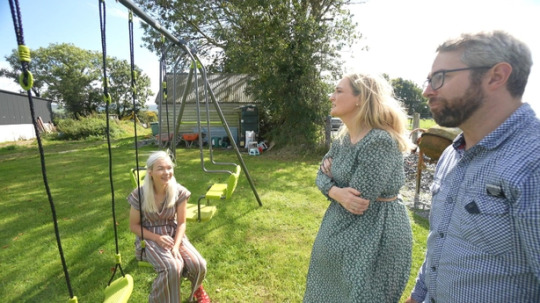
Brian and Kathy Egan had always planned to have four children. But after having her first son, Harry, Kathy had six miscarriages and she said she knew a larger family wasn't to be.
"It obviously gets harder every time to pick yourself up after it and try again. But we still felt very strongly that we'd be able to do this."
Kathy had no issue getting pregnant but couldn’t sustain the pregnancies. After another two miscarriages, the Egans began to consider surrogacy.
"Because it's new to you, you're second-guessing everything, you really want to make sure you have the right information. It's going to be the right clinic, the right surrogate, and everything is right in every way," Brian said.
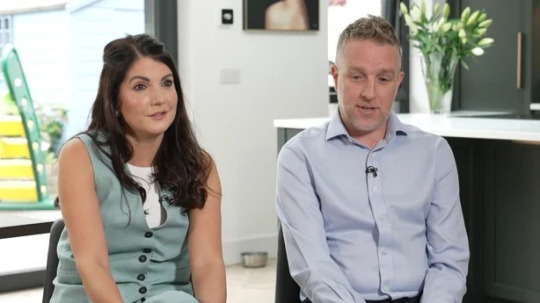
Kathy and Brian Egan
The cost of surrogacy in the US and Canada ruled that region out for them, so they began looking elsewhere. They decided to go with a clinic in Lviv, Ukraine.
"Within a month, we were matched with a surrogate who matched my blood type, and we went ahead. But unfortunately, at the 20-week scan, we discovered there was a fatal fetal abnormality within the heart."
That first surrogate pregnancy ended in miscarriage, but the Egans then found a second surrogate.
"We did Zoom or Skype calls with Mariana, our surrogate. Her first response after every checkup was, 'now, can we tell Kathy & Brian?'"
"She's a very strong lady and quite business-like too. She was in no doubt that this was helping us both," Brian said.
Baby Luke arrived in May 2019 while Brian, Kathy and big brother Harry were at home in Kilkenny. They travelled through the night to get to Lviv.
"You cannot get there quick enough. You'd swim there," Kathy said.
"He was tiny. He was four weeks early, but he looked like Harry looked when he was born. So, I knew straight away which one to walk over to."
"You feel like, you know, you've been talking to him for months and praying and hoping to meet him, but it's like no other feeling," Kathy said.
The entire process cost the Egans about €100,000, they said.
Two years later, in June 2021, the family were stunned when Brian was diagnosed with an aggressive form of prostate cancer.
"I didn't know what to say, really. That ‘cancer’ word anyway, you're all over the place," Brian said.
Eleven days after he was diagnosed, Brian’s prostate was removed. The surgery was a success, but his next blood test indicated the cancer had spread.
"At that stage I genuinely felt I didn't have long left. I was looking at Luke, he was two, didn't know if he was going, I was going to see him being three."
Brian received radiotherapy treatment and is still getting hormone treatment, which he says is going well.
However, due to the lack of regulation around the legal status for parents of children born through surrogacy, the Egans were left in a precarious situation.
Current Irish legislation does not cover legal issues that arise in surrogacy. The legal status and rights of all people involved are covered by the laws dealing with non-surrogate births.
This means the surrogate mother, who gives birth to the child, is the child's legal mother under Irish law. In the Egan’s case, Kathy is not Luke’s legal parent, although genetically he is her son as he was born using Kathy’s egg and Brian’s sperm.
"We just realised, if I pass away prematurely, Luke is effectively an orphan of the state." said Brian. "Kathy is just his legal guardian. He would not have a parent, he has different rights to Harry."
Brian and Kathy decided to take a case to the High Court, saying the State had failed to recognise Kathy as Luke’s mother.
The Egans were in court in April but have recently paused their action after hearing assurances that long-promised surrogacy legislation will be brought before the Oireachtas soon.
Under proposed terms of the Health (Assisted Human Reproduction) Bill 2022, parents of children born through surrogacy will be recognised as legal parents, if they meet certain criteria in the jurisdiction in which the surrogacy is intended to take place, and also the criteria to be specified in the Irish legislation.
Senator Mary Seery Kearney and her husband Dave tried to have a baby via IVF.
"We did 13 rounds.... I was pregnant on five occasions...unfortunately, they all resulted in a miscarriage," she said.
"We're a very close couple, but it's a very, very stressful experience. All my life... I wanted to be a mother. I wanted my own child," she said.
Mary initially thought that surrogacy was for well-off people: "My view was Elton John did surrogacy, really rich people did surrogacy. We were ordinary people, already indebted from all of the IVFs we had done."
When she began researching, she initially relied on Google. She said the most impressive website she found was for a clinic in Kyiv.
"We flew over, we gave them €12,000 upfront, and nothing came of that," she said.
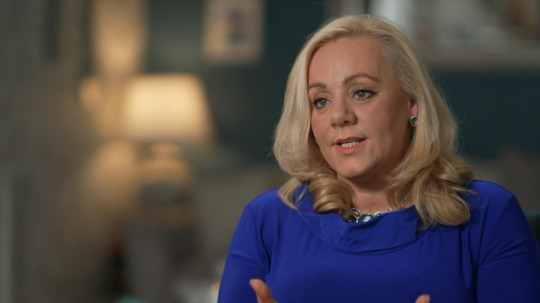
Senator Mary Seery Kearney
After that experience in Ukraine, Senator Seery Kearney and her husband found a clinic in India and a surrogate who would carry their child.
"We were so grateful to this woman, and I also felt a huge responsibility for her," Mary said.
They said they sent gifts every couple of weeks and engaged with the surrogate mother all the way through. When the pregnancy reached the 20-week mark, they allowed themselves to hope it would be a success.
"I have to say, right up until the moment we stood outside the theatre, I didn't really believe. I believed that something was going to go wrong. Because you, you carry that trauma into the experience," she said.
But when they were called inside they knew it was real.
"I literally ran, I screamed and ran, 'this is my little girl,' handed into my arms," she said.
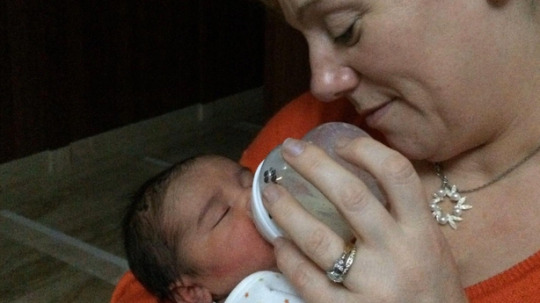
Now advocating in the Oireachtas for changes to made to Irish surrogacy legislation, Mary thinks 'goodwill' payments should be made to the surrogate to cover their costs during the pregnancy, but does not agree with commercial surrogacy: in which an agency takes a fee and passes on a portion of it to the surrogate.
"Throughout the process you have doctors paid, clinicians paid, you have the travel agent's paid, you have the lawyers paid.
"The only person that isn't entitled to any goodwill gesture at all is the person who's giving birth, who's carrying the pregnancy and giving birth. And that there is no reason why a goodwill payment could not be made to that surrogate," she says.
#Ireland#Surrogacy is not an only option#Adopt#Don't rent out a women and buy a kid#Irish couples had no trouble finding kids to adopt when the government and catholic church ran the Magdalen laundries#Irish couples exploiting Ukrainian women#At least the Wheatleys looked after the surrogate mother and her kids after the war broke out#Many other purchasing parents just grad the kid and don't look back at the woman#And how she's recovering from pregnancy and childbirth in a warzone#Health (Assisted Human Reproduction) Bill 2022#Why are Irish parents using surrogates if the laws don't recognize both parents?#Don't they stop and think about what will happen to the kid in the event if a tragedy?#13 rounds of IVF? When there are so many kids to adopt?
6 notes
·
View notes
Text
i should have learnt ukrainian as a child i rlly should have it would have been cool languages are so cool
#grandma took me to ukrainian orthodox catholic church as a child but i never understood anything bc i don't speak the language#and mass was in Ukrainian of course#im not religious tho but it would be cool to understand what the fuck goes on#gotta go for easter again and I don't understand anything akdnskskks#i only understood when grandpa told me to sit down#and cyka obviously. i have cyka tattooed on my arm#and pryvit#but i don't remember the phrase for sit down#it was. not the one on google#my ukrainian family was quite rude. im sure they were telling me like “sit the fuck down bitch ass brat” but i didn't understand lmaooooo#still nostalgic tho#ANYWAYS what im saying is: you should always take the chance lo learn any language#and i had the chance and didn't take it#and now they're all dead wjdkksks#well grandma's alive and well but she's italian actually#she just had to learn some ukrainian bc of grandpa#and she came to Argentina when she was 10 and she's like 78 now so she doesnt remember much Italian either#so i only know insults 👍
8 notes
·
View notes
Text
0 notes
Text
Head of Ukrainian Catholic Church Archbishop Sviatoslav Shevchuk talks war, Pope Francis, same-sex blessings | Catholic News Agency
#catholic#catholicism#christianity#jesus christ#ukrainian#ukrayna#ukraine#ukranian#ukrajina#ukrainian catholic#ukrainian catholic church#war#spiritual warfare#fiducia supplicans#catholic church#catholic news#pope francis#same sex blessings#same sex relationships#same sex marriage#evil#sviatoslav shevchuk
1 note
·
View note
Text
The Best News of Last Week - November 28, 2023
🐑 - Why did Fiona the sheep become a mountaineer? She was tired of the "baa-d" jokes at sea level!
1. Pope Francis dines with transgender women for Vatican luncheon
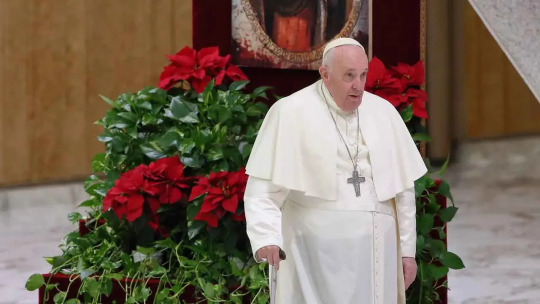
Pope Francis hosted a group of transgender women — many of whom are sex workers or migrants from Latin America — to a Vatican luncheon for the Catholic Church's "World Day of the Poor" last week.
The pontiff and the transgender women have formed a close relationship since the pope came to their aid during the COVID-19 pandemic, when they were unable to work. Now, they meet monthly for VIP visits with the pope and receive medicine, money and shampoo any day, according to The Associated Press.
2. New York just installed its first offshore wind turbine
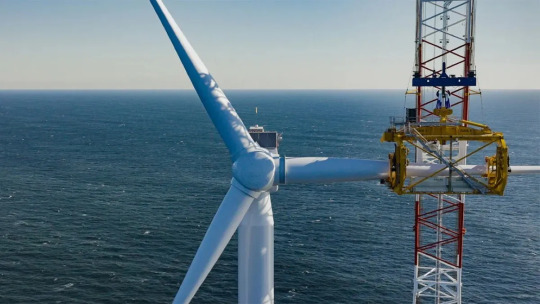
The first wind turbine installation at South Fork Wind, New York State’s first offshore wind farm, is complete.
The 130-megawatt (MW) South Fork Wind will be the US’s first completed utility-scale wind farm in federal waters.
3. Anonymous businessman donates $800k to struggling food bank
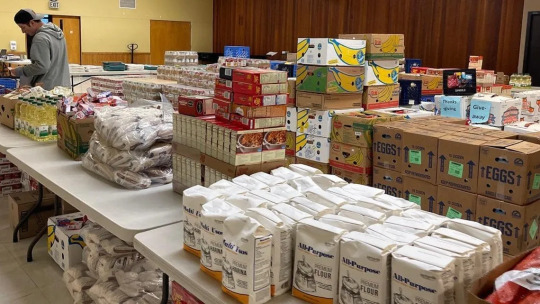
But this Thanksgiving, a longtime prayer of food bank leaders was finally answered: an anonymous benefactor donated the full $800,000 they needed to move out of a facility they've long outgrown. That benefactor, however, preferred to stay anonymous.
"Very private company, really don't want attention," said Debbie Christian, executive director of the Auburn Food Bank. "It's a goodhearted person that just wants to see the work here continue, wants to see it expand."
4. Empowering woman saving hopes and mental health of suffering Ukrainian kids

Kenza Hadij-Brahim is at the forefront of promoting Circle of Toys
Hadj-Brahim is helping to launch the Circle of Toys initiative. A project that provides Ukrainian children in need of some normality with preloved toys. This new initiative connects people with old toys they might otherwise throw away, with Ukrainian families in need who want to provide some comfort to their children in this distressing time.
Find Refuge said : “The endeavour is driven by a sincere purpose: spark joy, foster play, and bring a hint of normalcy back to the young lives in Ukraine.”
5. TWO LOST CITIES HIDDEN FOR CENTURIES WERE JUST DISCOVERED IN BOLIVIA
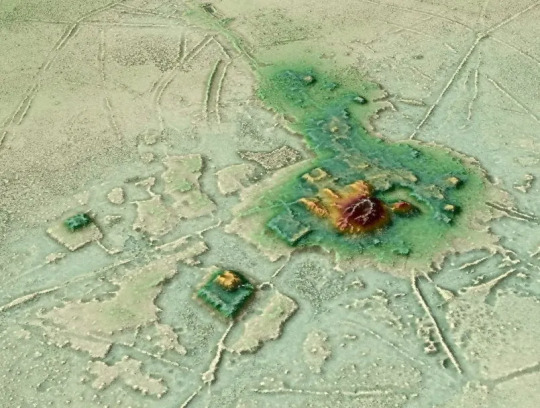
Researchers have found these areas not only housed structures and pyramids but it has been uncovered that there were advanced irrigation systems, earthworks, large towns, causeways, and canals that cover miles.
Dr. Heiko Prümers from the German Archaeological Institute, who was also involved in the study comments that “this indicated a relatively dense settlement in pre-Hispanic times. Our goal was to conduct basic research and trace the settlements and life there. The research sheds light on the sheer magnitude and magnificence of the civic-ceremonial centers found buried in the forest”.
6. Sheep dubbed Fiona rescued from cliff in Scotland where she was stuck for more than 2 years
youtube
And at last, some positive climate news:
7. Three positive climate developments
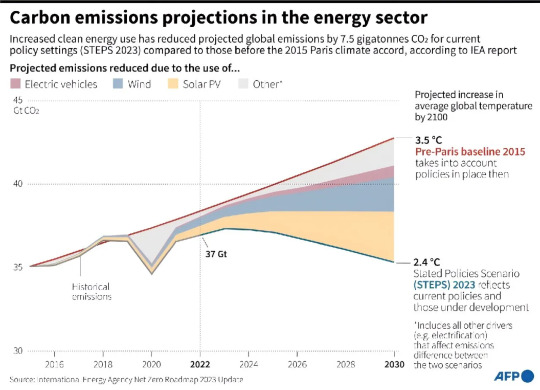
Heating
When the Paris Agreement was adopted, the global reliance on fossil fuels placed the world on a path towards a 3.5C rise in temperature by 2100. Eight years on, country commitments to reduce their carbon footprints have pulled that down slightly, putting the world on a path for a 2.5C to 2.9C by the end of the century.
Peak emissions
Annual greenhouse gas emissions responsible for climate change have risen roughly nine percent since COP21, according to UN data. But the rate of the increase has slowed significantly. Recent estimates by the Climate Analytics institute find global emissions could peak by 2024
Rising renewables
Three technologies—solar, wind and electric vehicles—are largely behind the improved global warming estimates since 2015.
---
That's it for this week :)
This newsletter will always be free. If you liked this post you can support me with a small kofi donation here:
Buy me a coffee ❤️
Also don’t forget to reblog this post with your friends.
812 notes
·
View notes
Text
Ukrainian Catholic leader gives Pope Francis Russian mine fragment
Ukrainian Catholic leader gives Pope Francis Russian mine fragment
The leader of the Ukrainian Greek Catholic Church gave Pope Francis a piece from an exploded Russian mine during a visit to the Vatican on Monday.
Major Archbishop Sviatoslav Shevchuk is in Rome this week to speak with Pope Francis and members of the Roman Curia about the war in Ukraine. It is his first time leaving Ukraine since Russia launched its full-scale invasion on Feb. 24.
During their…
View On WordPress
#Major Archbishop Sviatoslav Shevchuk#Pope Francis#Russia-Ukraine war#Ukrainian Greek Catholic Church
0 notes
Text

Representatives of the Ukrainian Catholic Church protest the visit of Russian Orthodox Church Patriarch Alexi II in Kyiv the year before the collapse of the Soviet Union.
The russian church has strong ties to the Kremlin.
29th October 1990
#ukrainian history#vintage ukraine#russia#ukraine#1990s#vintage photo#vintage#20th century#soviet union#ussr#anti communism#1990#october
64 notes
·
View notes
Text
While most Ukrainians battled against Germany during the war, it’s well known that the western region of the country collaborated with the Third Reich — and that thousands of those involved were allowed to resettle in Canada. [...]
When Anthony Rota, [...] introduced Hunka during Zelenskyy’s Sept. 22 visit, he called him a “veteran from the Second World War who fought for Ukrainian independence against the Russians and continues to support the troops today.”
And Hunka made the argument himself after Russia invaded his homeland last year. “In the last war, I joined the Ukrainian underground to fight Russia, so I was fighting the same people they’re fighting now,” he told a reporter covering a peace vigil in North Bay, Ontario, in March 2022.
“Nothing has changed there. The same enemy. First Stalin was there and now this idiot,” he said, referring to Russian President Vladimir Putin. [...]
In a post for the SS Galichina veterans’ blog Combatant News, Hunka wrote that 1941 to 1943 — after Germany invaded Ukraine and before Hunka enlisted — were the happiest years of his life. He also recalled eagerly awaiting “the legendary German knights” to come and attack “the hated Poles,” using a slur for Polish people, in 1939.
Captioned photos from the blog show Hunka during SS artillery training in Munich in December 1943 and in Poland around the time of a visit by Nazi mastermind Heinrich Himmler. “I know that if I ordered you to liquidate the Poles … I would be giving you permission to do what you are eager to do anyway,” Himmler said during that visit, according to several historical accounts.
Now, the Polish minister of education is looking into whether Hunka can be extradited and prosecuted for what happened during the war.[...]
[After the war,] Hunka made his living in the aircraft industry, working his way up to inspector at DeHavilland Aircraft in Toronto. After retirement, he visited Ukraine nearly every year, according to a profile of him in a University of Alberta newsletter announcing the donation made in his honor by his sons. The profile said he also served as president of the parish council of St. Volodymyr Ukrainian Catholic Church in Thornhill, Ontario.[...]
In his mea culpa, Rota made it sound like Hunka was a constituent from his district [...] whom he did not know much about. “This initiative was entirely my own,“ Rota said[...]
But Rejean Venne, an independent Canadian journalist, wrote in his Substack newsletter this week that Rota and Hunka family members have had numerous chances to cross paths over the years. Among Venne’s examples:
- One of Hunka’s sons, Martin, was chief financial officer of Redpath Mining, a multinational corporation headquartered in Rota’s district. Redpath has contributed to Rota’s campaigns and Rota has provided government funding for recreational facilities operated by Redpath. (The company did not respond to inquiries from the Forward made Thursday.)
- Martin Hunka has also served as chair of the board of trustees for North Bay Hospital, which is located in Rota’s district and which Rota has supported. Hunka’s name can no longer be found on the hospital’s website and social media posts. (The hospital did not respond to a request for comment emailed Thursday.)
- North Bay Pride, an LGBTQ+ organization, gave an award to Rota nine months after Yaroslav’s granddaughter Leshya Lecappelain joined its board of directors. In 2022 and 2023, North Bay Pride received more than $100,000 in funding from Rota. (Asked about this, a spokesperson for North Bay Pride said Lecappelain had not been on its board for several years.)
“Rota’s response that this was a last-minute request doesn’t add up,” Venne said in an email interview. “The Hunka family appears well connected in Rota’s district.”
The Forward could not determine whether Hunka and Rota met before he was honored at Parliament. Rota and others at the House of Commons did not respond to several requests for comment sent Wednesday and Thursday.
Efforts to reach Yaroslav, Martin and Peter Hunka, Lecappelain and other members of the family for comment were also unsuccessful.[...]
On Wednesday, the University of Alberta said it would return the CA$30,000 endowment that Hunka’s sons donated in 2019 in their father’s honor. The money was intended to fund research at the school’s Canadian Institute for Ukrainian Studies.
But Per Anders Rudling, a university alumnus and expert on Ukrainian nationalism who teaches at Sweden’s Lund University, said the Hunka fund is just “the top of an iceberg.”
In an email to the Forward, Rudling said the University of Alberta has “much larger endowments” honoring other figures connected to the Waffen SS unit. The “most problematic,” he said, is the Volodymyr and Daria Kubijovych Memorial Endowment Fund [Editors note: archive link - also "matched two-to-one by the Government of Alberta"] At CA$450,000 — about $334,000 — it’s 15 times larger than the Hunka fund the university is returning.[...]
In a Facebook post Thursday, Rudling also questioned university endowments named for other Galichina Division veterans, including Roman Kolisnyk, Levko Babij and Edward Brodacky.
Pointing to research he published in The Journal of Slavic Military Studies [Editors note: 1, 2], Rudling said, “I have tried to raise this issue in the past, to no avail.”
Asked about Rudling’s concerns, Michael Brown, a spokesperson for the University of Alberta, reiterated a statement in which interim provost Verna Yiu said the school is “reviewing its general naming policies and procedures, including those for endowments, to ensure alignment with our values.” Yiu also expressed the school’s “commitment to address anti-Semitism in any of its manifestations, including the ways in which the Holocaust continues to resonate in the present.”
The honors given to SS Galichina fighters extend beyond academia. One of the University of Alberta’s endowments is for its former chancellor Peter Savaryn, another SS Galichina member. In 1987, Savaryn was awarded the Order of Canada, among the nation’s highest honors, bestowed by Canada’s governor general, the representative of the British Crown. Mary Simon, the current governor general, has condemned the Hunka scandal as “a shock and an embarrassment.”[...]
When the Hunka endowment was announced in 2020, the university said it would fund research on two “leaders of the underground Ukrainian Catholic Church,” Cardinal Josyf Slipyj and Metropolitan Andrei Sheptytsky. (A metropolitan is akin to a bishop.)
Slipyi was a deputy in Ukraine’s 1941 self-proclaimed government, which pledged to work closely with Germany under Hitler’s leadership. Slipyi also assigned chaplains to SS Galichina and celebrated the unit’s inaugural Mass. After the war, the Soviets sent him to gulag prison camps.
But Sheptytsky’s legacy is layered [sic]. He helped “dozens of Jews find refuge in his monasteries and even in his own home,” according to Yad Vashem, while also supporting “the German army as the savior of the Ukrainians from the Soviets.”
Harvard University also houses a Ukrainian Research Institute. Asked, after Alberta’s announcement, whether that institute’s funding would be scrutinized for Nazi ties, the university said in a statement that the institute had never received money from the Hunkas, nor had it received donations designated for research related to SS Galichina.
Harvard did, however, in 1974 establish a fellowship and faculty position in European studies with money from a foundation named for Alfred Krupp, who was convicted of war crimes for using slave laborers from Auschwitz to build and work in a factory.[...]
In Canada, questions about the Ukrainian immigrants’ past dogged them for decades, and in 1985, the country launched a Commission of Inquiry on War Criminals, known as the Deschênes Commission.
Investigators were mostly limited to considering evidence gathered in Canada, and ultimately they came to the controversial conclusion that the Galichina Division “should not be indicted as a group” and that “mere membership” in the division was insufficient to justify prosecution or revoke citizenship.
This week, as Trudeau apologized for the Hunka salute, B’nai Brith Canada called for the full release of the commission’s report, which had been heavily redacted, along with other Holocaust-era records, in order to “restore public trust in our institutions.”
“Canadians deserve to know the full extent to which Nazi war criminals were permitted to settle in this country after the war,” the group said Tuesday[...]
Why would Hunka’s family risk his humiliation, at age 98, by putting him under a spotlight? Did they not realize how his military record would be perceived and portrayed?
“It’s arrogance. It’s not naiveté,” said Jack Porter, a research associate at Harvard’s Davis Center for Russian and Eurasian Studies and himself a Jewish child survivor of the Holocaust, born in Ukraine.
“They know what their father did,” he said. “It’s hubris, it’s chutzpah. They rationalize that these men were fighting communism. If a few Jews were killed, they also were communists.”[...]
More than 2.5 million Ukrainians died fighting against Germany. “There were many good Ukrainians; they should not all be stigmatized,” he said.
But he said veterans who fought under the Nazis like Hunka and his compatriots have been emboldened by the whitewashing of their history, especially since Russia’s invasion of Ukraine last year.
“They’ve been hiding in plain sight,” he said. “They’ve been there for 60 years and nobody has touched them, so of course they feel OK.”
29 Sep 23
144 notes
·
View notes
Text
Stamp series "Glorious women of Ukraine"




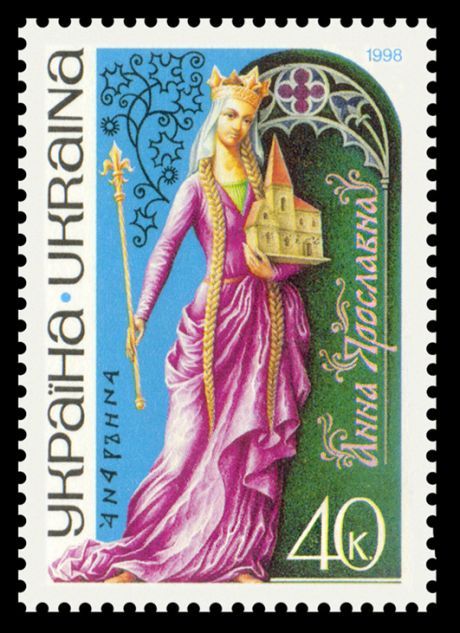
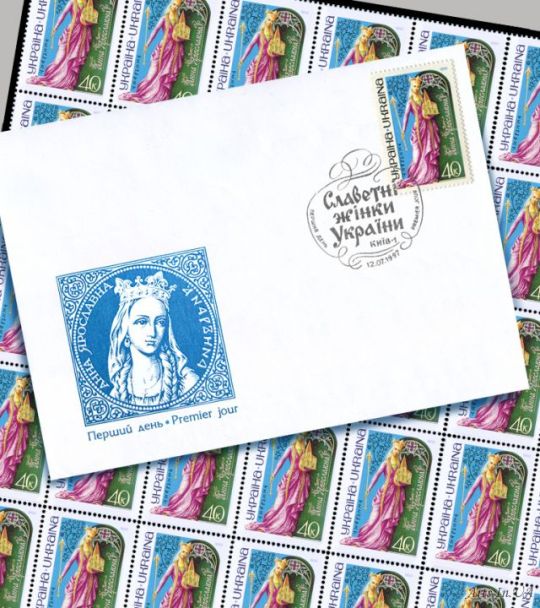

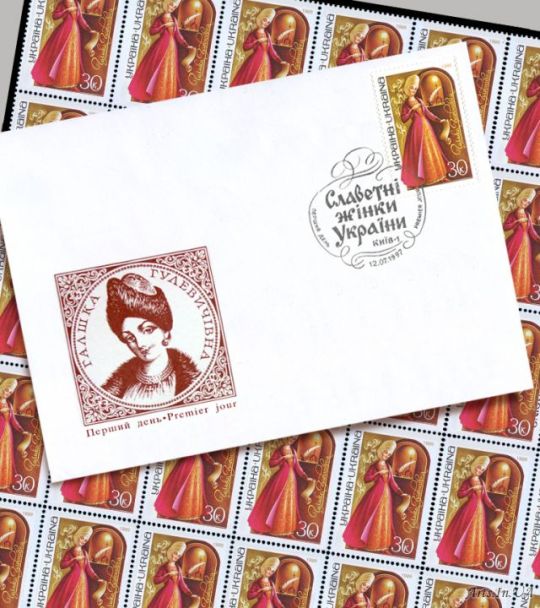

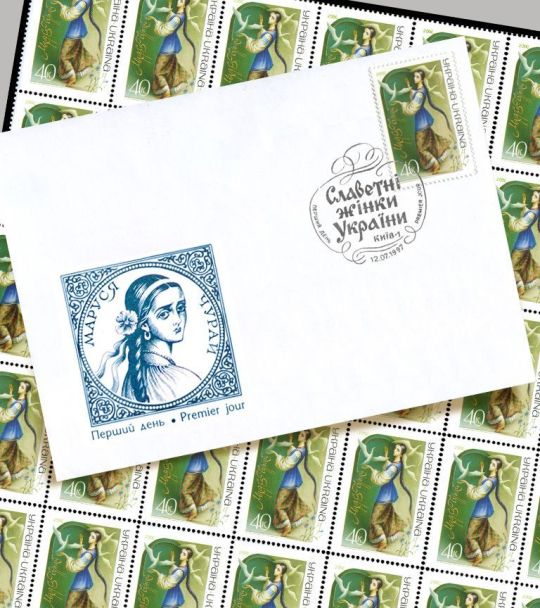
1. Duchess Olha (Olga)
The first, among the dukes of Kyivan Rus, accepted Christianity, although she was unable to make it the state religion. She was canonized by the Orthodox Church. Having a tough temper and a sharp mind, she harshly took revenge on the Drevlians for the murder of her husband, first killing the ambassadors, and then burning the city of Iskorosteń. At the same time, she managed to very delicately refuse the courtship of Emperor Constantine, making him her godfather. She organized the collection of tribute and is considered the founder of the city of Pskov.
2. Roksolana (Nastya Lysovśka)
A woman who needs no introduction. An example of a personal feat, when, despite difficult circumstances, a person was still able to find the strength to overcome them.
By the way, contrary to popular opinion, Roksolana in no way facilitated the fate of the the Ukraine, and in no way prevented further robberies. But it would be extremely unfair to condemn her for this.
3. Anna Yaroslavna
The middle daughter of Yaroslav the Wise, who later became the queen of France, is the author of the oldest examples of Ukrainian writing. Her signatures, which are on many state documents, are surrounded by countless crosses - marks of the highest vassals of France. The first of the queens of France who had regent power. She founded the St. Vincent Abbey, which still operates today and was purchased by the Ukrainian Catholic University in 2013.
4. Halshka Hulevychivna
With her donations, this woman started the Kyiv Brotherhood School, which later became part of the Kyiv-Mohyla Academy, sponsored the opening of a school and a hospital for the poor population.
5. Marusia Churai
A semi-legendary singer with an unfortunate fate. She inspired her contemporaries with her songs and has been inspiring poets and writers for many centuries who sing her tragic love story. He is considered the author of the songs "Winds are blowing", "Oh don't go, Hrytsya", "Hrytsya, Hrytsya, go to work", "The dove is sitting on the shore", "Zasvit vstaly kozacheńky"
123 notes
·
View notes
Text
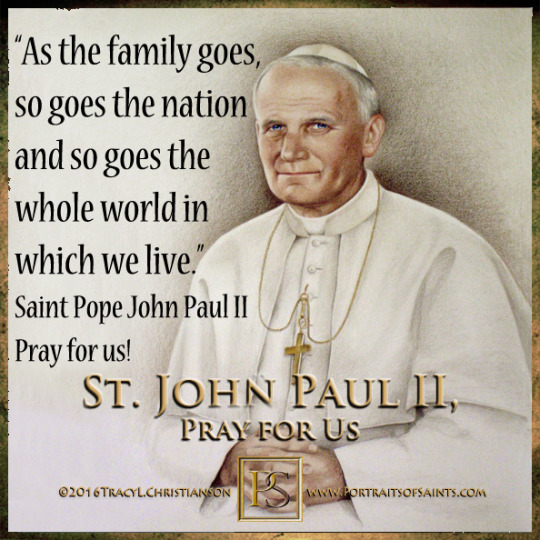
Pope St. John Paul II
1920-2005
Feast Day: October 22
Patronage: Archdiocese of Krakow, World Meeting of Families, World Youth Day, Young Catholics, Families, Swidnica, Polish-Ukrainian reconciliation, labor
Saint John Paul II, known as John Paul the Great, was born Karol Wojtyla in Poland and had an active happy youth. Yet before his 21st birthday, his whole family had died. He studied for the priesthood in secret during the Nazis and then Communism control of Poland. He was secretly ordained in 1946. For the next 20 years, he was a pastor, a professor, and a student himself. In 1978 Karol Wojtyla became the first non-Italian Pope of the Catholic Church. He traveled to over 100 countries, was a prolific writer, and was loved by youth worldwide. He survived an assassination attempt in 1981 and even forgave the assassin. Pope John Paul died of Parkinson’s disease and was the second longest reigning Pope.
Prints, plaques & holy cards available for purchase here: (website)
128 notes
·
View notes
